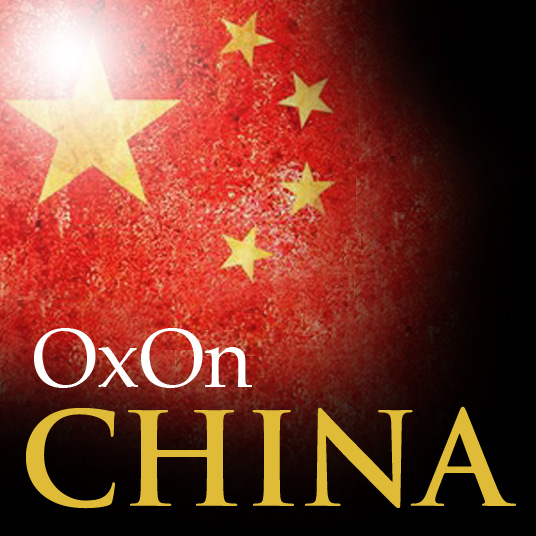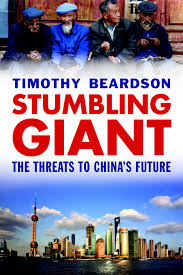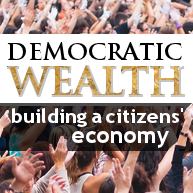
The time is now for wealth taxes in Britain
Private households in the UK own an estimated £10.3 trillion in property and other assets, most of which is relatively lightly taxed. Following the 2008 financial crash, the need to find additional public resources to reduce or obviate the need for painful spending cuts and fund growing long-term demand for public services makes wealth an attractive potential tax base. However, while it is generally accepted that the current system of property and wealth taxation in the UK is highly flawed, there is no broad political consensus on whether and how different forms of wealth should be taxed. There is also a lack of evidence about the potential impact of different approaches.

Social and environmental injustice in rural China
It is well-known that one of the key fault lines of inequality in China is the rural-urban divide. Rural China has been the engine of much development through industrialisation; through farming to provide food for China’s cities; and through land grabs which open new areas for investment and government revenue. Yet the benefits of such development are distributed unfairly. Many rural residents either do not benefit directly from development or do so at great cost to their health. These inequalities are compounded by the continued disparity in welfare provision between rural and urban areas. Welfare provision in China’s countryside has doubtlessly improved after the introduction of rural healthcare cooperatives in recent years, but it remains limited. Illness is as an extreme embodiment of routinized and recurrent forms of social suffering and exclusion from various forms of care and welfare. As I document in my book, Fighting for Breath, a population’s attempt to secure care is both a physical and a social struggle to maintain integrity and to ensure family and neighbourly support.
Over the past decade, I have spent almost two years living in rural China and researching attitudes to development,illness, pollution and morality. This has brought me to witness first-hand some of the often unthinkable suffering rural villagers face (environmental and otherwise), as well as poignant moments of human dignity, kindness and resilience. Many of these scenes will stay with me forever. A woman in her fifties salvaging roof tiles before she demolished by hand her own newly built home to make space for a road. A seventy-year-old woman refusing treatment for glaucoma — because ‘one eye is enough’ — whilst opting to save the money for her grandson’s education. My host tending to her dying father (suffering from oesophagus cancer) as he spat blood into newspaper scraps. Sixty-year-old Uncle Wang committing suicide by drinking pesticide in the final stages of stomach cancer. His wife, a few years later, scavenging plastic bottles in the township to boost the family’s income and support her granddaughter’s education. Villagers growing crops in fields they know to be severely polluted. An anti-incinerator activist lying in bed surrounded by flies next to his sick wife after suffering a stroke.

Toward a generative economy
“What kind of economy is consistent with living inside a living being?” This was a question posed under a leafy canopy, deep in the woods of southern England, not far from Schumacher College where I’d come as a teacher. I stood listening with a group of students as resident ecologist Stephan Harding asked what for me would become a pivotal question – the only question there is, really, as we negotiate the turn from the industrial age into a new age of civilization.
I’d come to Schumacher to share my learnings from four years as cofounder ofCorporation 20/20 at Tellus Institute in Boston, where I’d helped lead hundreds of experts in business, law, government, labor, and civil society to explore a critical question: How could corporations be redesigned to incorporate social and ecological aims as deeply as financial aims? Over 20 years as co-founder and publisher of Business Ethics magazine, I’d seen how corporations and financial markets had come to be the dominant institutions of society, how their profit-maximizing operating system had become the operating system of the planet. That design lay at the root of many major ills facing our society. But Stephan’s talk helped me understand why redesigning corporations did not quite hit the mark as the solution: You don’t start with the corporation and ask how to redesign it. You start with life, with human life and the life of the planet, and ask, how do we generate the conditions for life’s flourishing?

Small Details Make for Big Injustices: Re-education through Labour and Administrative Litigation
The legal relationship between the Chinese state and the citizen are contradictory. The laws on administrative litigation are on one side of the spectrum. They allow the Chinese to sue their government, one of the regime’s most promising reforms (though it has often failed to live up to its potential). On the other hand, re-education through labour (RETL) (laojiao (劳教)), a draconian detention programme, has long been a focal point for critics of China’s human rights record, whereby China’s police can sentence an individual to three years (with a possible 4th year extension) in a labour camp without a trial
Particular cases bear out these contradictions. Tang Hui and Zhao Meifu, two women detained separately under China’s re-education through labour system, have become so well known in China that they helped prompt calls for reforming the RETL system. Yet, both women were recently denied compensation by China’s administrative courts. While criticism of China’s human rights record and courts tends to be very general, these cases show that the small details of China’s legal system showcase the biggest injustices.

A republican call for a basic income
There is no such thing as “the market economy”. Markets come in many varieties and their character is a matter of political choice. Saying that a market is politically shaped is simply to state the obvious, namely that any economic market is first political and then economic. A politics-free market does not exist in the real world outside of standard economics text-books or, paradoxically perhaps, in the prevarication of politicians who deny its political component precisely for political reasons.
So, if markets are irreducibly political, we need to ask what values should guide their political construction. The Democratic Wealth series has given much attention to ‘republicanism’ as a philosophical tradition which might serve as a source of guidance (see, for example, these contributions from Alex Gourevitch, José Luis Martí and Philip Pettit).
But which republicanism?

Exposing wrongdoing and controlling public opinion through online video in China
In this video [click on full post], a young woman sits on the floor tearfully telling her story: Yue Dan was on holiday in the southern city of Sanya with her husband. Returning to their car, the couple got into a dispute with a parking attendant. According to Yue, a group of men in suits arrived and started beating them. When the police arrived, they joined in beating the travelers without attempting to assess the situation and deaf to Yue’s pleas for mercy. The five-minute-long video ends with photos of the women’s injuries and videos shot by bystanders1.
Yue’s story is just one of a multitude of examples of how Chinese citizens are increasingly using online video to seek justice, retribution or recompense for wrongdoing, and build public support for their cause. However, public response is generally ephemeral and sporadic, and the authorities often aggressively act to control and prevent these attempts to harness the power of Chinese netizens.
The video, which implores media and web users to publicize Yue’s story and help her achieve justice, was posted to the microblogging platform Weibo on 12 February by a tiny blog called Sanya Hero. Although my current research involves tracking the flow of information and comments on Weibo, it is impossible in this case; the video was rapidly removed. A comment on the same blog less than ninety minutes later, thanks readers for forwarding the video, but instructs them to remain rational and wait for an official resolution.

China in the 21st century – not the superpower that some say it will be
This Wednesday at 5 PM, author Timothy Beardson will discuss his new book, “Stumbling Giant”, at the Institute for Chinese Studies. The book examines the challenges to China’s rise and discusses their impact and the policy prescriptions available to confront them.
The overwhelming majority of the literature in recent years has suggested that China will eventually occupy America’s recent role as the global superpower. While avoiding histrionic extremes such as eventual dominion or coming collapse, Mr Beardson disagrees, arguing that it is highly unlikely that China will become the world’s superpower in the 21st century.

Economic justice requires more independence, not less
A republican economy should aim at maximising the genuine independence of economic actors. Only then can corruption be tackled at the root.
In part this essay is a response to Stuart White’s call in his introduction to the Democratic Wealth series to challenge the relevance of republican ideas for thinking about how to build a citizens’ economy. I will first point to a significant potential weakness in contemporary republican political theory. There is a danger in the republican view of non-domination, namely the failure to recognise in relation to a republican economic order that it is necessarily an order of power. In one sense this view is perfectly consistent with the version of republicanism that has been proposed in recent times by Philip Pettit and Quentin Skinner, in so far as they licence interference by the state as a means of preventing non-domination. But, as emphasis is often important, there is a need to focus on the other side of the republican equation of freedom – the minimisation of dominance entails the maximisation of independence.
How can this goal of the maximisation of the independence of economic actors be squared with the idea of governed economy where the conduct of those actors is subject to regulation and even prohibition? I will argue that the primary purpose of economic governance in a republican economy should be to promote the independence of economic actors as a means of preventing the abuse of economic power and the corruption of public life.









